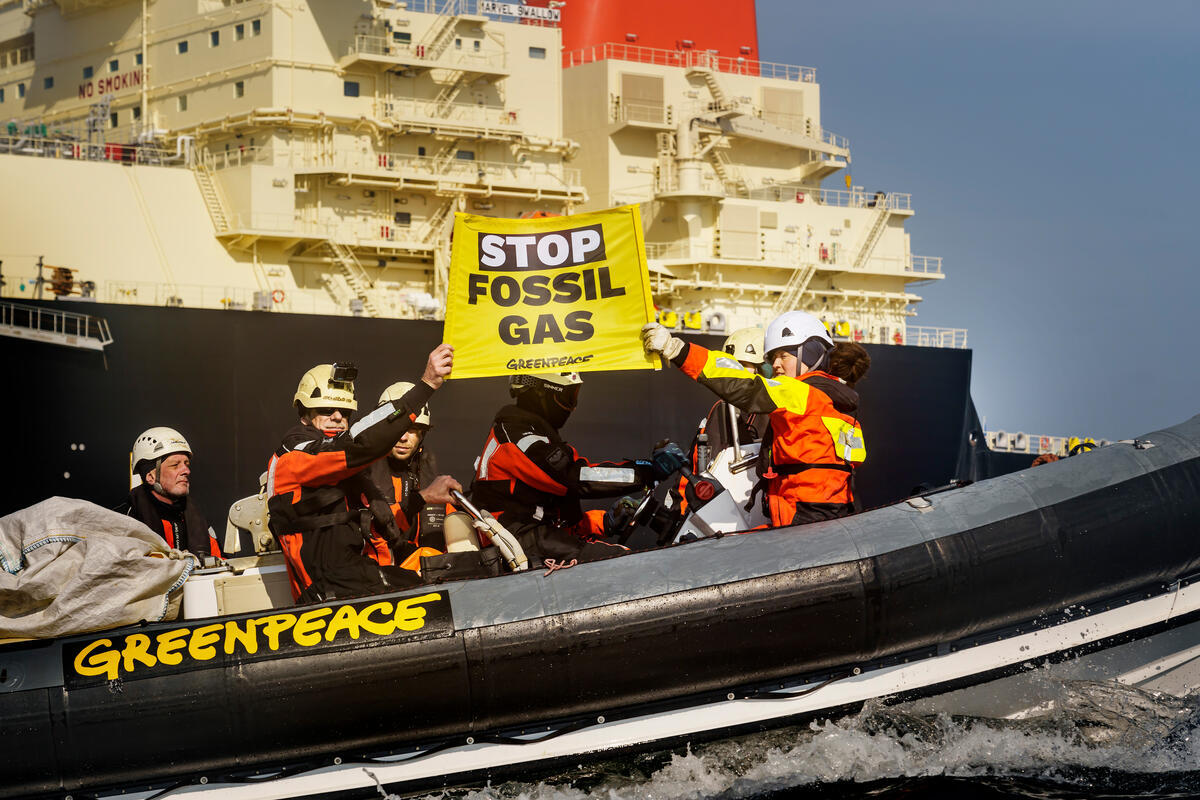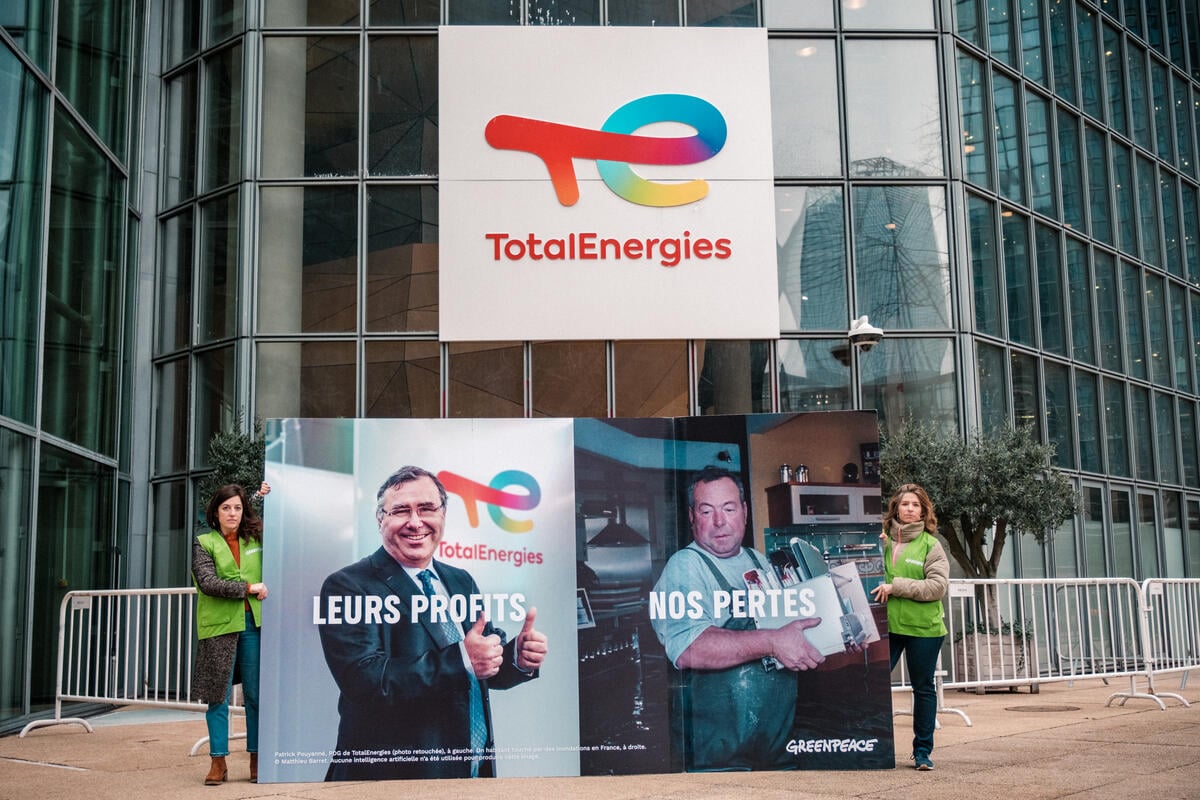What happened?
On May 29, 2020 over 20 thousand tons of diesel leaked into the water and soil from a storage tank owned by Norilsk Nickel near Norilsk, turning the Ambarnaya River red. According to official data, the oil spill in Norilsk is the largest ever in the polar Arctic. Norilsk Nickel were taken to a local court for the damage by the Rosprirodnadzor (the Federal Service for the Supervision of Natural Resources), a regulator which is part of the Ministry of Natural Resources in Russia.
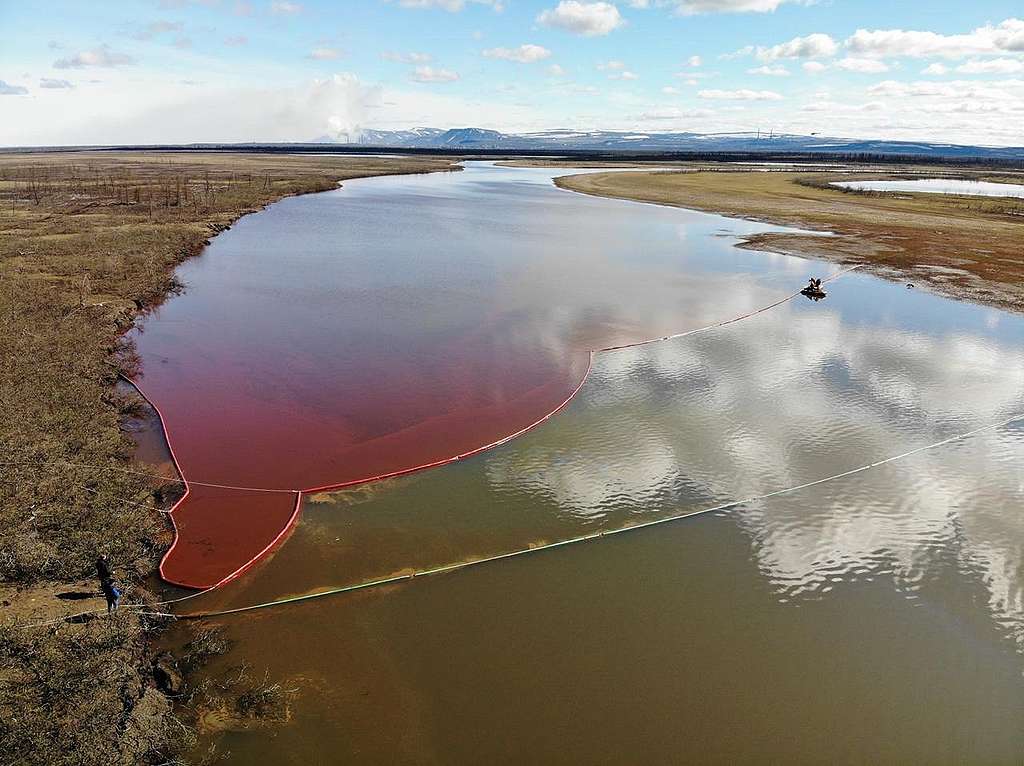
The Ambarnaya River runs red with a layer of petrochemicals. © Anonymous / Greenpeace © Greenpeace
What now?
The Krasnoyarsk Arbitration Court ordered the Norilsk Nickel to pay 146 billion rubles (nearly 2 billion USD) for the oil spill in the Taimyr Peninsula. And although the amount of damage was slightly less than the one requested by Rosprirodnadzor.
Why it matters
The accident immediately attracted the attention of journalists and environmentalists from all over the world. Greenpeace in Russia was one of the first to begin to cover this topic in detail, and also posted space images in which the ecological disaster was visible even from space.
As like so many incidents when polluters don’t check themselves and the environment is hurt, the damage lands heaviest on local communities.
It is the largest compensation for environmental damage in the history of Russia.
The deeper story
Greenpeace, together with Novaya Gazeta, organized an expedition to Taimyr to take soil and water samples and survey the banks of the Pyasina River, where Indigenous Peoples are engaged in fishing. The company has repeatedly tried to restrict the access of journalists and specialists to the crash site, and also prevented the export of samples from the peninsula.
As a result, it was not possible to take samples at some important points, and the selected ecologists and journalists were able to take out later than the deadline set by the laboratory (on the fourth attempt).
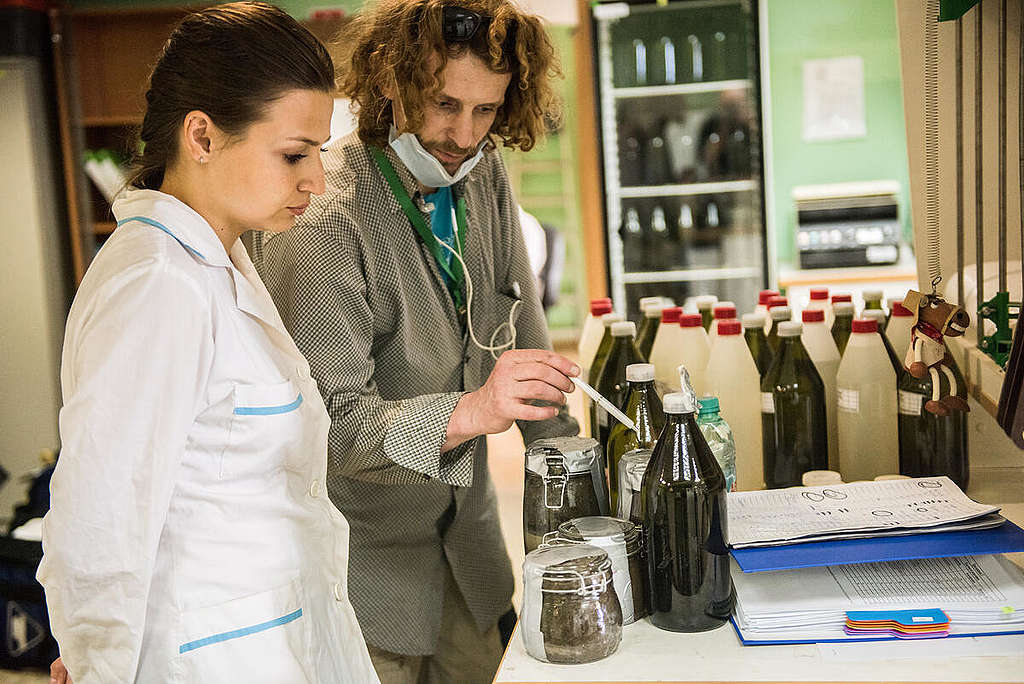
Despite these circumstances, oil products were found in some of the samples, which means that the spilled diesel could not be stopped at the mouth of the Ambarnaya River (as the company stated), and the oil products were carried out towards the Kara Sea.
What Greenpeace Russia is saying about it
Elena Sakirko, Head of the Energy Department of Greenpeace in Russia, said: “The size of the claims of Rosprirodnadzor against the subsidiary company Norilsk Nickel, which was upheld by the court today, but you can’t put a price on nature. In Russia, accidents involving oil and oil products spills regularly occur. Some of these incidents do not even get into the official statistics, but if the company fails to hide the leak, then compensation for damage and the amount of fines often do not correspond to the consequences – dead forests, lack of fish in rivers – grave consequences for the entire ecosystem. Accidents often occur on the lands of Indigenous Peoples, which leads to the loss of the ability to continue the traditional way of life in the disturbed territories. Today’s court is in many ways a precedent that can help to truly solve environmental problems at the system level.”
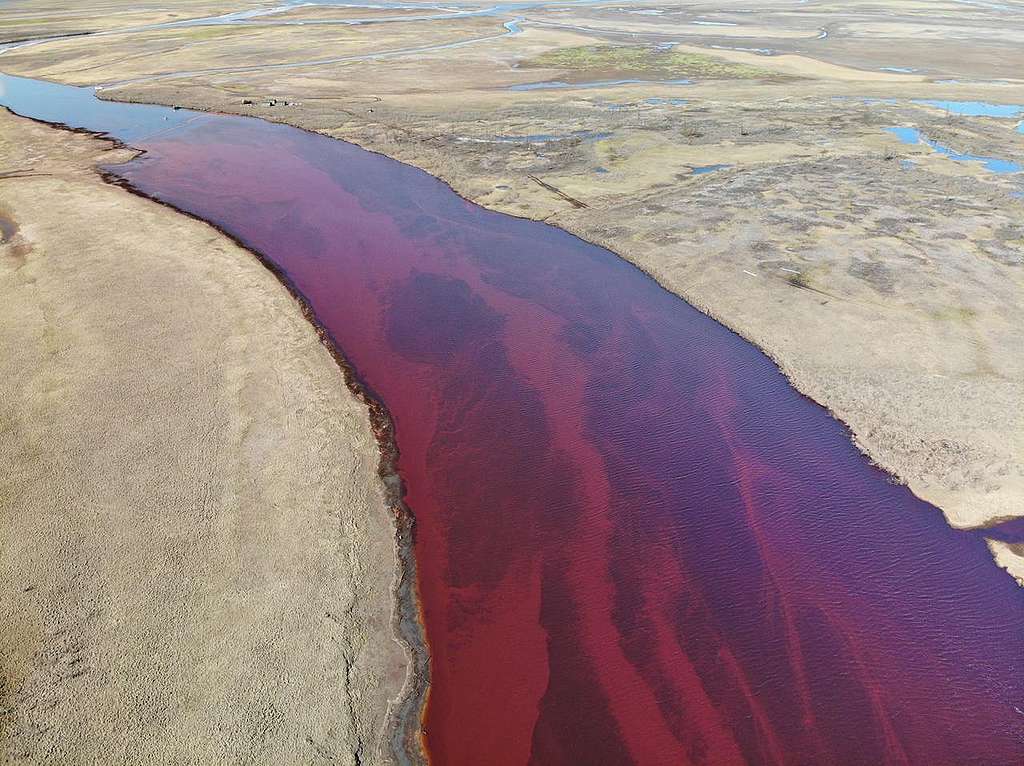
What needs to happen now
The ideal solution to the problems associated with oil spills is to phase out oil as a source of energy. Oil and petroleum products pose a huge danger to the climate. It is necessary to move to new carbon-free energy technologies as soon as possible, especially in such a vulnerable region as the Arctic.
Russia needs to adopt a green recovery package based on climate-friendly solutions and technologies. The Russian government must take serious measures to combat climate change and start a just transition to end the age of oil.
Elena Sakirko is the Head of the Energy Department with Greenpeace in Russia

